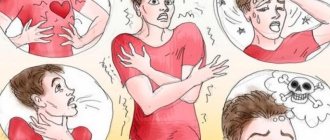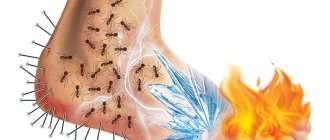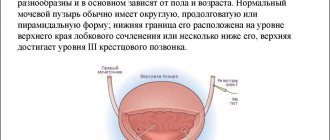Depression
Most likely, they stimulate the processes of repair, restoration and even growth.
In other words, homeopathic remedies cannot make grief go away. They cannot allow anyone to avoid grief. Initially, during the first few hours or days, a state of shock occurs. In the following weeks - a state of irritability, anger or sadness and tears.
In the first few weeks there is deep sadness, loneliness and depression.
Shock has elements of fear, excitement and even panic. This condition is well known as an indication for Aconite . An acute, intense, sudden condition usually does not last long. Mood changes from deep depression to hysterical laughter within a few minutes.
Ignatia is characteristic of this period. Inappropriate behavior: laughing when others are serious and sad, or refusing to speak.
A person in Ignatia takes deep breaths and complains of a lump in the throat that makes swallowing difficult. Solids are easier to swallow than liquids (quite the opposite of what you might normally expect).
This intense state often appears during the first few hours and days after bereavement, often during a funeral.
Ignatia is a great remedy for loss. Hysterics. Sits, sighs and sobs. Melancholy with tendency to tears. The face turns red with excitement. Laughter ends in screams or chest convulsions with a blue face.
Nervous women, dejected by recent grief. They hide their disappointments. Patients cherish their grief and protect it from others. Grief is accompanied by sighs and sobs. Crying over nothing. Extremely businesslike. Sad in the evening.
Imagines that he cannot get up and walk. He is afraid that he will get a stomach ulcer. He is afraid of every little thing. The slight contradiction turns the face red. Impatient, indecisive, prone to quarrel.
Desires inappropriate things. The noise is unbearable. Doesn't want to talk. Indifference to everything. Prone to anger. Obsessions. The patient suppresses and hides his grief from others.
The patient wants to be left alone with his grief.
Magnesia Carbonicum and Magnesia Muriaticum are characterized by quick outbursts of anger and great sensitivity to loneliness. Kent describes them as means for orphans. Jan Scholten uses them with children whose parents are separated or divorced.
He also suggests that Magnesia Muriaticum is more indicated when the patient has strong feelings of anger towards his father, and Magnesia Muriaticum is more indicated when anger is felt towards his mother.
This anger is felt until the death of a particular parent, or it may arise only after that.
Often loved ones suffer from a sense of injustice. It seems that the deceased treated them poorly during the last days of his illness.
This state of anger and indignation is commonly seen in the indications for Staphysagria . This state is characterized by the expression “this is not fair!”
Colocynth, which we usually associate with abdominal colic, is also one of these angry, indignant remedies.
Pulsatilla is indicated for people who have a strong sense of loss and abandonment. They feel very lonely. Pulsatilla seeks comfort and support. They need the company and sympathy of others. They need support and attention.
They want to be hugged. Pulsatilla also shows instability in the early stages of grief. Their mood can change quickly. Maudlin, sad and melancholic. She is not centered within herself. The patient confides her grief to anyone who comes to her. She's looking for sympathy.
She is timid and compliant.
A completely different way of dealing with feelings of loss is found in Natrum Muriaticum . He needs to be left alone. He hates fuss and feels much worse when people express comfort to him. Natrum Muriaticum really only need time, They need personal space and time. Tearfulness and depression.
Gloomy mood from colic in the rectum and from constipation. Constant recollection of previous troubles. Irritability. Indifference and mood swings. Worse from consolation. Hopelessness. Migraine with zigzag vision, depression, palpitations and skin problems after relationship disappointment.
Melancholic people who are always worse from consolation.
Phosphoricum acidum . The lasting impact of grief. Night sweats from exhaustion. Strong pressure in the crown of the head. Marked indifference to everything in life and weakness. Illnesses from grief. Numbness from grief. Hopelessness. Dejection.
Despair. General weakness. Prostration. Red stripes in the middle of the tongue. Urine like milk with jelly-like pieces of blood. Poor amount of milk. Worse from mental work, warm food and cold dry weather.
Better from movement, warmth and damp weather.
Calcarea phosphoricum - irritability, skin problems, dizziness, migraine and rheumatic problems after unrequited love.
Causticum - illnesses or ailments after disappointments or unrequited love in hypersensitive people. They are very sensitive to the fate of others, despite their own worries and troubles. Dejection before menstruation. Prolonged grief. Melancholy.
Hopelessness. The patient sees everything in black light. Sadness. Sees everything in black light. Melancholy from care, grief or sadness. Depression alternates with anxiety, irritability and hysteria. The face is yellow. Fear, cowardice and timidity. The patient is full of bad feelings.
Cimicifuga - depression and feelings of doom after a failed romance. Pain as from electric current. Women often suffer from gynecological problems.
Hyoscyamus - Attacks after disappointments in love. Jealous and suspicious. She tears up love letters and destroys all reminders of her ex-lover.
Staphysagria - disappointments in love in very sensitive people. Outbreaks of violence. Pride. They resent their own insignificance. Apathy. Weak memory. Undeserved insults. Sexual excesses. Obsessive thoughts on sexual topics.
Kalium carbonicum . Depression and sadness. They are shy and need reassurance. Increased sensitivity to insults. The desire to be in company. Despair and anxiety at dusk. Fear of loneliness and illness.
Fears of an incurable disease. Stubbornness and demandingness. Indecisiveness. Wakes up in fright. Absent-mindedness. Dullness and numbness. Any fear is felt in the stomach (Asaf., Aur., Bru., Calc., Sapp. sat., Canth., Dig., Lyc., Mez.
, Phos., Thuja).
Sepia . Constant irritability or complete indifference to everything. Tearfulness, fear and excitement. Disgust for everything near and dear. Nervous symptoms relieved by vigorous exercise.
The tides end later. Weakness and fainting. Any movement or tension is accompanied by a fit of heat or profuse sweat. The prolapsed uterus fills with blood. Fainting and trembling.
Heaviness in the legs after sleep.
Rectal prolapse. Sweat on the genitals, armpits and back. Lichen squamosus or psoriasis (Arsenicum and Arsenicum jodatum). Ring ring (Calcarea carb., Baryta carb. and Tellurium).
Scabies, pustules mixed with itching blisters (Sulfur). Joint weakness. Dislocations of joints. Depressed state. Loss of interest in everything. Indifference to everyone, even to your loved ones.
Classical dancing improves your condition.
Lachesis . Melancholy and fear of death. Irritability and agitation. Long-term sadness turns into chronic illness. Patients are gloomy and depressed. They feel unhappy.
Disturbed brain in the morning and on waking. Talkativeness and jealousy. Worse after sleep. Increased sensitivity to touch and compression. Left-sided symptoms. Transition of symptoms from left to right. Better from discharge.
Does not tolerate heat and confined spaces.
Ambra grisea . Depression alternates with agitation and irascibility. Indifference and indifference. Sleepy state on awakening. Premature aging. Dreamy and forgetful. Trembling in limbs. Unsteady gait. They jump from topic to topic. They ask a question without waiting for an answer. Neurotics with weak psyches.
Nux vomica . The patient cannot work mentally after eating. Hypochondria in scientific workers. They sit at home, complaining about their stomach and constipation. They want to commit suicide, but are afraid of death. Ardent and angry. The sick beat anyone who resists them. They are arrogant.
Lilium tigrinum . Nervous irritation. Needs work, but cannot work much. Haste in manners. Depressed state. A premonition of impending misfortune. It’s better when he distracts his attention with some activity.
Nerag . Unpleasant events are constantly remembered. Sadness in the evenings. Thoughts about suicide. Dissatisfaction with everything.
Platina . Depressed mood. Arrogance. Fear of death. Everything seems too petty. The mood is tearful.
Conium . Doesn't know what to do with himself. Time passes too slowly. Angry, in a bad mood. Very capricious. Anxious thoughts after breakfast. Indifference and depressed mood when walking in the open air. Afraid of the present and the future. Looking for loneliness. Hypochondria from impotence. Impotence from too frequent sexual intercourse or from prolonged sexual abstinence.
Ambra grisea . Anxious thoughts in the evening. It seems that something has broken off in the heart area. Sad. Despair. Very cool. Trembling and despondency. Easily upset. Whiny, irritable and quarrelsome. Alternating despondency and anger. Indifferent to joy and sorrow. Sad.
Baptisia . Confusion of mind, like a drunken person. The patient cannot concentrate. Patients feel scattered around the bed and cannot reconcile the fragments of their body.
Colocynthis . Disinclined to talk. Dull, joyless and silent. Gloomy and gloomy. He takes everything with resentment.
Cocculus . Crying. Absorbed by sad thoughts. Takes insults to heart. He sits, deep in thought. Time passes too quickly. Doesn't want to do anything and doesn't find pleasure in anything. Very dissatisfied with myself.
Very worried about the illnesses of others. Can't finish. Active restlessness. Anxiety over a trivial ailment. Anxiety, as if I had committed a terrible crime. Afraid of any surprise. Everything irritates him. He takes everything with resentment.
Crazy desire to sing.
China . Extreme sadness. Anxiety and caution. Dejection and hopelessness. Piteous and loud crying. Screams and rushes about for no apparent reason. Gets angry easily. Tends to argue and quarrel.
No desire to work. Contempt for everything. Aversion to physical and mental work. He makes many great plans for the future. Lots of projects. Makes mistakes in writing. It greatly interferes with other people's conversations.
Selenium . Severe forgetfulness. In a dream he sees what he forgot.
Cina . Restless. Talking nonsense. The child is very whiny. Wants many different things. Refuses everything that is offered to him. You can't calm down with any beliefs. Insensitive to consolation.
Aurum metallicum - for major depression with a tendency to self-harm and suicidal thoughts. Patients believe that they are good for nothing and want to commit suicide. Sad. Weakness and anxiety. Dissatisfied with himself and depressed.
It seems that he will die soon. He thinks about death with pleasure. Cries and sobs. He seems unfit for this world. Fainting with cold sweat on the limbs. Severe vomiting, cramps and diarrhea. Remorse for one's idleness. Restless and indecisive.
Thinks he's doing everything wrong.
Constant sullen seriousness. Must always be on the move. Sad and dejected. Anthropophobia. Melancholy. Wants to die. Dissatisfied with everything he has. Unrestrained. Sits alone. Desire for activity. Afraid that someone will come in.
Angry despondency. He thinks that he is not capable of anything. Deepest melancholy. He himself is to blame for his own failures. Depressed and sad. Disinclined to talk. Takes offense at the slightest trifle. Hot-tempered and excitable.
The slightest contradictions cause intense anger.
Naja . Patients constantly think about suicide.
Cuprum . Loss of sleep from mental overstrain. Mental and physical exhaustion.
Chamomilla . Irritation. Moody, after lunch. Cries and sobs. The child wants one thing or another, and when they give him something, he throws this object away from himself. Shudders at the slightest trifle. Always gloomy, prone to getting angry. Can't stand it when people talk to him. Can't stand music.
Excessive sensitivity to any odors. Tends to quarrel. Looks for the bad side in everything. Lost in spirit, moaning and groaning. He sits on a chair like a statue and doesn’t notice anything around him. Speaks reluctantly, sharply and abruptly. Remorse for any reason. Serious and reserved. Calm submission to fate.
Obsessions.
Helonias . Loss of spirit. Apathy. General weakness. Relief from entertainment.
Lithium carbonicum . Fluttering of the heart during mental excitement.
Lycopodium . Fatigue from mental work due to loss of brain activity. Depression with weakening of memory and intelligence. Depression with apathy. Anxiety and constant dissatisfaction.
Children wake up from nightmares. They make mistakes when writing. They can't find the right words. Hides his physical weakness by pretending to be arrogant and despotic. Shudder at the slightest sound. Submission to fate. Sadness and despondency.
Cries easily at the slightest provocation.
Source: https://aso.in.ua/depressiya/
Treatment of depression with homeopathy: reviews
- July 8, 2018
- Psychiatry
- Julia Saap
Depression is a serious disorder of a person’s mental health that can lead to dire consequences.
Modern medicine offers many ways to eliminate this condition. Starting with classical methods (taking medications) and ending with massage, aromatherapy, homeopathy.
Does homeopathy help with depression? Let's try to figure this out.
What is depression
Treatment of depression with homeopathy is one of the ways to cope with the disease. Therapy is carried out in combination with antidepressants. Depression is a mental disorder. Translated from Latin, the word means “to suppress.”
In order for a patient to receive such a diagnosis, it is necessary to identify the so-called “depressive triad”: depressed mood (loss of interest in oneself and others), a negative stream of thoughts (pessimism) and reduced physical activity.
The main signs of depression include partial or complete lack of appetite, as well as insomnia.
The disease provokes a disorder of the nervous system. Most often it occurs in winter. Feelings of depression, apathy, and hopelessness constantly accompany depression. The disease can be of two types: exogenous and endocrine.
The first occurs in people with somatic illnesses, problems in their personal lives or at work. Depressive episodes may not last long and may come and go intermittently.
The second provokes mental problems, lasts a long time, and is difficult to treat.
Symptoms
Treatment of depression with homeopathy, if it is not prolonged and occurs periodically, is effective in 80% of cases. Recognizing the disease is not difficult, because the symptomatic picture is pronounced.
The patient experiences a depressed mood, which lasts from several days to weeks. A person is overcome by melancholy, he becomes indifferent to his appearance, environment, situation. Anxiety and restlessness appear or intensify.
One of the main symptoms of depression is the inability to enjoy things that previously gave pleasure and brought positive emotions.
Signs of depression are also considered to be decreased attention, self-esteem, self-deprecation, and constant feelings of guilt. Sleep is disturbed, thoughts of suicide arise, and the person sometimes even tries to commit suicide. Important symptoms of depression include loss of appetite or, conversely, gluttony, which was not previously observed.
Many people believe that depression is not a disease and does not need to be treated. It's a delusion. A depressive state does not go away on its own, but provokes the emergence of various health problems, aggravates chronic diseases, and causes relapses.
Treatment
Homeopathy for depression is one of the options for getting rid of the problem, which is not traditional. The main therapy includes medication. A treatment plan for depression often looks like this:
- Selection of antidepressants, taking into account the dosage and regimen of drug therapy. The doctor selects medications based on the symptoms and picture of the disease.
- Carrying out a course of therapy aimed at reducing the number of symptoms. It not only reduces symptoms, but also completely relieves the patient of them and restores the nervous system.
- Carrying out a maintenance course of therapy. It is carried out within six months after the patient’s condition returns to normal. Therapy is aimed at preventing relapse.
- The use of traditional methods and homeotherapy. Infusions, herbal teas, and mixtures of medicinal herbs are recommended.
- Psychotherapy is indicated for patients with depression caused by problems in their personal life or at work. Sessions with a psychologist can help resolve the situation and look at it in a new way.
Prevention
Treatment of depression and neurosis with homeopathy is one of the methods of getting rid of the disease. But prevention is always better than any therapy. After completing a course of treatment for depression, it is important for the patient to follow some recommendations that will help avoid relapse.
- Compliance with the work and rest regime. You need to sleep at least eight hours a day. This will help the body recover faster and minimize stress.
- The absence of bad habits allows you to keep your body in good shape. Nicotine, alcohol, and some medications can trigger depression. It is a mistake to believe that with their help it is easy to forget about problems.
- Trusting relationships with loved ones will also help to consolidate the results of homeopathy treatment for depression. Support from relatives improves mood and raises self-esteem.
- Unattainable goals, a lot of work, lack of personal life and rest lead to exhaustion of the nervous system and depression. Hobbies, new hobbies and positive emotions will bring positivity.
Features of homeopathy
Does homeopathy really help with depression? Homeopathy is a type of alternative medicine that is based on two principles.
The first - “like cures like” means that an overdose of drugs aggravates the symptoms of the disease, and the second - the medicine will work more effectively if it is the least concentrated.
That is why homeopaths use the most diluted composition to treat diseases, including depression. Homeopathic medicines are plant extracts and chemical elements (gold, sulfur, calcium, iodine) dissolved to low concentrations.
Homeopathy is practiced by qualified specialists with medical education who have completed additional specialization courses. There are different opinions about the effectiveness of homeopathy in treating diseases.
Many people present personal experience as confirmation of the effectiveness of the technique.
Those who treated depression with homeopathy do not refute its positive effect on the body, but no one provides serious scientific arguments.
Indications
Who has homeopathy helped with depression? Judging by the reviews, many recovered after this therapy. The principle of its action is similar to antidepressants, including the strength of the components. Indications for taking homeopathic medications are depression, as well as other somatic diseases.
One of the most popular remedies are infusions and tablets based on St. John's wort. “Winter depression”, anxiety states, and neuroses respond well to treatment with homeopathic medicines. Therapy eliminates symptoms such as anxiety, irritability, apathy, and lethargy. It is recommended instead of tranquilizers for people who have experienced the death of loved ones.
The peculiarity of homeopathic medicines is that they have a gentle effect on the human body. That is why combined use with other medications is allowed, but only after consultation with your doctor. For example, “Aurum metallicum” contains gold compounds. The drug harmonizes disturbed processes in the body, puts the nervous system in order, and eliminates insomnia.
How to use
Can depression be treated with homeopathy? This alternative method can be a complement to primary therapy. It has been proven that emotional disorders can be successfully treated with homeopathic medicines. In order to assess the patient's condition, the Beck scale is used. Judging by it, improvements in patients occur after three months of taking the drugs.
Homeopathic doctors use herbal remedies such as mustard, gentian, pine, olive oil, elm, and hornbeam for therapy. They are indicated if the patient experiences guilt, fatigue, despondency, or lack of energy.
Traditionally, the following drugs are used to treat depression: “Arnica Montana”, “Kali Phosphoricum”, “Sepia”, “Natrium Muriaticum”, “Arsenicum album”, “Graphites”, “Ignacia”, “Nux vomica”, “Meadow lumbago” .
Like traditional medicine, homeopathy uses psychiatric therapy to treat depression. For patients with insomnia, Arnica or diluted phosphoric acid is recommended before bedtime.
Contraindications
Homeopathy has contraindications. For mild depression, you can limit yourself to conventional medications that are sold in pharmacies without a prescription. Homeopathic preparations based on St. John's wort should not be used by patients with severe depression, pregnant and lactating women, as well as patients with individual intolerance and allergic reactions to natural ingredients.
Reviews
Depression is a serious condition of the human body and psyche. Its peculiarity is that in the absence of proper therapy, the disease becomes more severe.
Reviews of homeopathy treatment for depression confirm that the disease can only be gotten rid of in a complex manner.
Patients who have coped with depression note that the main thing is to find a professional homeopath and not self-medicate.
Homeopathy copes well with depression, improves mood, fights symptoms, cleanses the body, and gently restores the nervous system. The disadvantages are that you cannot treat yourself with this method; it is easy to encounter charlatans, especially on the Internet; if depression is severe, homeopathy may not help; individual intolerance to homeopathic medicines.
Source: https://SamMedic.ru/332087a-lechenie-depressii-gomeopatiey-otzyivyi
Briefly about homeopathy
What is homeopathy today, in a nutshell?
Some substance is taken, most often a plant extract, and diluted in certain proportions. “decimal” and “hundredth” dilutions are used, i.e. 1 unit of substance to 10 solvent, or 1 to 100. The number of dilutions is repeated, and repetitions are indicated by Roman numerals. Thus, a decimal dilution repeated three times will give a proportion of 1 unit of substance to 1000 solvent, but the composition of the drug itself was not obtained immediately, but through repeated dilution. For example, if you see the designation “3D” on the label, then you are dealing with a ratio of 1:1000, 12 repetitions of a hundredth dilution is designated “12C”. This ratio is 1:10^24. In this case, the probability that the preparation will contain at least one molecule of the original substance tends to zero, and there will be more impurities.
The absence of the original substance in the products sold does not bother homeopaths. They claim that the efficiency with a large number of mixings will be even higher, since, from their point of view, water “has memory” and retains the properties of the original substance. True, they cannot explain how water manages to “forget” all the compositions in which it was included before falling into the hands of homeopaths.
So, in classical homeopathy there is no original substance or only a small number of molecules are present. True, advertising articles do not always talk about this. Most often they lie that the ratio of the drug is 1 g per 100 g of product. Simply for the reason that no one will buy 2 molecules of something poisonous, which in a way unknown to science has become a medicine.
Homeopathy for neuroses!
Nowadays, neurosis is practically the norm. No, of course, this is not the norm, not the norm at all, this is a serious disease (fortunately, reversible), but it is a fact that neurosis can be diagnosed in every third person.
Sad fact! And the saddest thing is that people suffering from neurosis do not seek help. Yes, I’m nervous, yes, I’m depressed, yes, I’m “fed up” with everything, yes, I’m losing my temper... So life is hard, everyone is like that.
Sound familiar? Here it is, neurosis in all its glory.
What is neurosis? This is a reversible and protracted mental disorder that is caused by stress, conflicts, and psychological trauma. Symptoms of neurosis can be different - it depends on its form, but most often patients experience neurosis with manifestations of depression.
Self-esteem decreases, difficulties arise with communication, anxiety arises, fears arise - for no reason. The person becomes suspicious, touchy, unsociable and irritable, and suffers from insomnia. Apathy gradually develops, plus weakness, fatigue, and blood pressure disorders.
You may even experience indigestion, cough, and sexual dysfunction.
But neurosis is a reversible disease, that is, you can get rid of it.
I treat neurosis with homeopathy. How successful can be understood from a letter from one of my patients.
“I always tried to keep my opinions to myself, but this time I couldn’t restrain myself. Because Dr. Voronkov literally brought me back to life.
The beginning of my story is banal: love. I fell in love with a girl, I suffered for her, but she didn’t for me. Everything finally became clear when, in response to my proposal to live together, the girl simply laughed and left.
That's it. I don’t want to eat, I don’t want to sleep, and I don’t want to talk, even less so. I don't want anything. Such a capable vegetable. I lay on the couch and looked at the ceiling, that’s all. Then a nervous tic appeared that did not go away. Spit. For everything: life, teak, mother’s tears, friends’ sorrows, studies...
But my mother still pulled me out of this state. At first she started taking me to doctors, who unanimously made the same diagnosis: neurosis with manifestations of depression. They prescribed various pills, but in my opinion, they made me turn even more into a vegetable.
In the end, my mother found Dr. Voronkov. I don’t know who suggested it to her, but many thanks to this person. Because Andrei Anatolyevich gave me back to me.
To be honest, my first visit to Voronkov did not show me the best side - I didn’t want to answer the doctor’s questions, but they could examine me without any problems.
Basically, the doctor talked with my mother, talked for a long time. Then he connected some kind of thing with wiring to me (diagnosis according to Voll), played some tricks with me... He prescribed me more pills. That is, not tablets, balls.
Small, sweet... Well, okay, my mother begged me to drink them.
And then, after some time, I woke up and felt that I wanted to live. Don’t stare blankly at the ceiling, but move, learn, do something. This is how my recovery began - very soon I became myself. In general, to Andrey Anatolyevich - my respect and many thanks. He pulled me out of the swamp. So, if you have been given the same diagnosis, urgently see Dr. Voronkov, he will put you back on your feet!”
Igor Ignatov, 19 years old, Kolomna, Moscow region
As you can see, homeopathic treatment can help even in the most serious cases - and Igor’s case was more than serious. Why is that? Because homeopathic treatment, first of all, implies a complete diagnosis of the patient’s condition, and only then the prescription of certain homeopathic mono-medicines.
Homeopathic treatment of neurosis and depression
Since it is very important for a homeopath to know everything, even the most subtle complaints and symptoms of the patient, I always carry out diagnostics using the method of R. Voll. Of all those known today, this method is the most comfortable, the most harmless and the most informative.
Thanks to Voll diagnostics, it is possible to identify any changes in the functioning or structure of organs even at the cellular level - before these changes appear, before they can be seen on ultrasound, MRI, or detected using tests.
Diagnostics does not last long, but the results of the study are the most complete and reliable. At the same time, I can obtain data on the condition of each organ and all disorders in the body.
No diagnostic method gives such results! By the way, sometimes at my appointments patients learn for the first time about hormonal diseases, about endometriosis or fibroids... I don’t just scare them with these diagnoses, but I immediately begin treatment for these concomitant diseases.
Why is diagnosis so important in homeopathic treatment? Because the accuracy of selecting an individual composition of homeopathic monomedicines for each patient depends on the accuracy of the disease picture.
If the drugs were chosen incorrectly, they will not help, although they will not cause harm - but why should patients waste extra money, time and (again!) nerves? Thanks to the extensive capabilities of modern diagnostics, I prescribe medications accurately, so the treatment result is always positive.
Therefore, if you or your loved ones have “earned” neurosis, do not wait until life turns into a continuous black streak - make an appointment and I will help you regain your health, physical and mental!
Call any day of the week from 9.00 to 21.00, come for an appointment, and you yourself will understand that the examination can be comfortable, fast and effective, and the treatment can be simple, inexpensive, but effective!
Source: https://www.gomeomed.com/zabolevaniya/nevroz/
Treatment of depression with homeopathy - homeopathic antidepressants without prescriptions, reviews
In the modern world, every person is overloaded with stressful situations, which is why they fall into a depressive state. This interferes with everyday activities, depresses the psyche and can be a catalyst for many diseases, especially chronic ones.
How depression manifests itself and how experts assess it
A drop in energy below zero can cause insomnia or total apathy. Depression is manifested by such emotional and physical symptoms as:
- loss of appetite;
- excessive smoking, alcohol and drug abuse;
- bulimia;
- excessive performance as a way to drown out pain;
- loss of motivation and drive;
- feelings of hopelessness, helplessness;
- difficulties in making decisions;
- loss of ability to concentrate;
- memory lapses.
In addition, a depressive state is manifested by a feeling of loneliness and low self-esteem, lethargy and despondency, crying for no obvious reason, indifference to oneself, family members, friends, and work. Patients also have a feeling of inferiority and are often visited by negative ideas and pessimistic thoughts.
Don't brush off depressive disorder. Doctors usually prescribe antidepressants in such cases. But they can cause many side effects - irregular heartbeat, nausea and diarrhea, cause severe sweating, and in rare cases, an allergic reaction.
Therefore, it would be a good idea to consider an alternative method of treating depression - homeopathy, which successfully helps with emotional imbalance of the condition, which affects both the body and the psyche. Homeopathic therapy for 3 months allows you to transfer the patient from moderate to mild.
Over time, depressive symptoms disappear completely.
The most popular homeopathic antidepressants include:
- Mustard;
- Pine - suppresses feelings of guilt;
- Gentian – fights a chronic state of despondency;
- Olive oil – strengthens endurance;
- Elm – reduces the feeling of constant fatigue;
- Hornbeam – provides an influx of energy.
The most popular homeopathic remedies for depression
Among the great variety of homeopathic remedies that are most often prescribed by specialists in this field for the effective treatment of depression, it is worth highlighting the following:
- Arnica Montana - helps with financial losses;
- Kali Phosphoricum - strengthens determination and stimulates motivation;
- Sepia - for those who suffer from feelings of isolation and loneliness, and experience chronic fatigue;
- Natrium Muriaticum - for those who feel depressed;
- Arsenicum album - for irritable and whiny patients, restless and suicidal, with a manic demand for cleanliness;
- Aurum Metallicum - prescribed to people who have low self-esteem and an exaggerated sense of guilt;
- Graphites - helps desperate people;
- Ignacy - suitable in case of loss of loved ones or severe disappointment;
- Nux vomica is for those who carry grief within themselves and cannot express it openly. Such people become overly irritable;
- Meadow lumbago - prescribed for hormonal imbalance.
The most popular and frequently used remedy in the treatment of depression is St. John's wort. Hippocrates himself wrote about its healing qualities.
It contains a lot of useful ingredients, among which it is worth highlighting flavonoids, hyperforin and hypericin - the main depressant component. This drug causes fewer side effects than pharmaceutical drugs, but it cannot be called absolutely safe.
St. John's wort extract helps with mild to moderate depression, but the mechanisms of its action are still completely unknown.
How long does it take to treat depression with homeopathy?
You should not make a diagnosis yourself and call any state of despondency depressive. Sometimes a simple loss of mood just requires time and empathy. Depression comes in varying degrees of severity. Sometimes it is a component of manic psychosis.
In this case, the result of treatment may not always be favorable.
The duration of therapy is determined by the severity of the condition. If the problem is only insomnia and apathy, then 2-3 months will be enough. When a depressive state lasts 12 months, therapy will take at least six months.
Within a month, most patients begin to feel much better and feel a surge of energy.
Tips for taking homeopathic medicines
Experienced homeopaths recommend taking one granule of the product three times a day for 3 days. When improvement occurs, you should stop taking the drug. And resume it if the drug helped, but over time the symptoms returned.
What happens if you don't get treatment?
If measures are not taken in a timely manner and not treated, patients’ appearance will deteriorate and allergic and skin diseases may develop. Their immunity decreases and severe weakness appears.
This leads to problems in the family and at work. People experience sexual dysfunction. Drug addiction and alcoholism often progress against this background. Sometimes patients solve problems by attempting suicide.
But if treatment is started in a timely manner, at an early stage the therapy gives a positive result faster. But the main condition is the individual choice of single drugs and their correct dilution - a lot depends on the concentration. It is also important to correctly prescribe the dosage regimen. All this can only be done by an experienced specialist who has knowledge and experience in treating adults and children.
Patient reviews
“I don’t want to rant for a long time about how Voronkov helped me. I can only confidently recommend him to everyone who continues to swallow chemical tablets, antidepressants, etc. Treat yourself with homeopathy! No side effects, no addiction! Cheap and cheerful! And the mood is great!
Regina, 44 years old"
“I was in the hospital 2-3 times a year. They dripped, pricked... And so for many years. So far, the hospital has not recommended this homeopath. I went back to work and slept great. And I don’t accept anything except grains of it!
Oleg, 62 years old"












